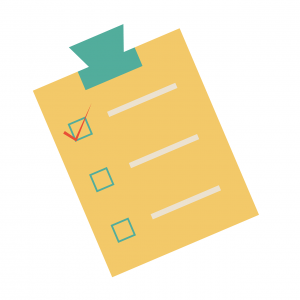I got the question: How does your website appear on Google? And how do you get it high, top? My answer was the basis of this article.
The answer to how this should be done is not completely clear and some opinions differ among those who are interested and following developments, but there are some things to consider.
I started working with texts for Entrepreneurs.com 2005 and have tested most things and think that much is common sense.
Over the years we have listened to various “seo experts” with varied results, for most of the time we have actually lost traffic when many do not think long-term or try to take shortcuts.
Today, the industry has gone through self-cleaning and many root eggs are gone, while Google has made it harder to cheat and clarify the exact formula for success.
Now I’ll review some of the things to keep in mind. There is no guarantee of ranking well and it is also no work you do once.
SEO or search engine optimization is a work that should receive regular attention, just as you look over its store to optimize sales in it.
I have received Murthy, who is SEO Manager at Kingfisher, to add their thoughts. These are marked with MU.
These tips are mainly for those who have no experience with search optimisation before.
Checklist to appear on search engines

Here is a post about new website check list hope it helps you.
Heading
The title should attract clicks while containing words and phrases that you think your audience uses when they search on Google.
The title must also clearly conform to the content of the text. It’s been a long time since it was easy to manipulate the search engines and just write the words you would rank on as many times as possible.
A good friend who started an online casino and online games expressed it as follows: “All we needed to do was rank higher than the competition, using the keyword a few more times than the one. ”
MU : One should win the click.
Title
The title is the text you see in Google’s hit list when you search, ie the title of the page. It is often the same as the title of the page but you can choose to use another text with a variety of words and phrases you want to rank on.
See image where you can see the title of the page:

Even though you choose a title tag for your article, there is no guarantee that Google selects that text as search results, but you can still try and try different options. (Google sometimes selects a custom text that this considers fits the content of the page better.)
Previously, one had to use more or less just the word that would be ranked first in the title. It does not apply now anymore. The number of characters you can use in the title should be below 60, maybe (try out) up 65 including spaces. Previously, there were a maximum of 55 characters.
MU : The title tag is the most important on-site element, just like the name of a chapter in a book. We use up to 70 characters nowadays when we write titles. It is primarily applicable to commercial words, not information words but the method is similar. One should ensure that there are words in the title to win the click.
Number of words in the text
Long texts almost always rank better than short. They also provide more hits on Google as the text contains more words.
For example, if someone searches for “start e-shop shoes” and your article contains all the words, you are more likely to get a visitor than a competitor’s article that contains the words start, e-shop and t-shirts. ”
Logically, but here it is important to make a balance. Long texts can also scare the reader.
MU : I usually use the terms exhaustive or thorough articles. But the consistency will often be the same as you say Patrik, a long article. It should be easy to read. I myself often make the mistake of being a little too heavy.
The language
A good language, correct spelling with nuances and explanations of words and phrases is good. The words you use can be found on. So instead of using only the word “e-shop”, you can use online store, online store, e-shop and other synonyms.
Explaining difficult words or industry terms is smart. Ex “The word improper means unsuitable, inappropriate, inconvenient or unwarranted”.
The curious readers appreciate getting things explained and learning something new and that you have the chance to get hits by those people searching for “what means unfair” or a quick search.
It should be easy to read. Simple language and good paragraph breakdown. I often make the mistake of being a bit too heavy and long.
Pictures
Use pictures and name the pictures with the words the picture represents. Also add ALT tag and title tag to the images. It increases the chances of your photos appearing in image searches. Images also lighten the text and make the page more enjoyable for the visitor.
Inter Links
If you link from your content to the pages of the site you want to highlight, this will facilitate the reader.
Google assumes that the pages you link to are your best content and therefore the chances are that these pages will rank higher in SERP. SERP (from the English search engine results page) means the search engine results page, the page that displays the answers when searching for something.
More things that affect your ranking on Google

Now I have reviewed the things that are usually easiest to influence. Other factors that matter how well the site or e-store ranks in the search engines are:
inbound links
Getting other sites and blogs to link to your site is good. Even better if the page from the link comes from is about the same content as yours. Here you can work with others, switch links and ask to get guest write with others and thereby link to the site you work with.
Age on site / domain
There are thousands of new sites started every day. Everyone can not be seen on Google and a way for Google to highlight the best sites is to highlight sites that have been around for a while.
Very many, perhaps a majority of all sites that are started, are not a year later. The contractor or blogger tired and gave up. It is good for us who are persistent and think long-term.
Technology and codes
Good and clean tags that load fast and do not create bugs / errors on the site, give a better experience to the visitor and it is premier to Google.
It is also important to customize the site or make the desing responsive.
This means that the page automatically adjusts to what device / screen size the visitor is using. Using a mobile phone reduces the size of the page and less important elements and modules turn off or move down.
Relevance
MU : Shop your site about cars, just type it from different angles. Do not skip to other topics on the site. The more narrow the theme is on the site, the easier it is to rank.
A short summary
To succeed with your site, e-shop, online store, blog, forum, article, write good texts with rich, varied text and link the content with the rest of the site.
Link the content with any other sites and blogs you run or create collaboration with others who run similar sites where your content complements each other.
Do not think about Google – if you make the site useful to visitors, user-friendly, you will also rank better on Google.
More, you need hardly a look at.
Bonuses # 1
MU : We use the following layout or structure in the articles that look like this:
H1
H2
H2
H2
That is, the headline has <h1> and the sub-headings have <h2> tag. We usually ignore H3, etc., when the benefit is so marginal.
Bonuses # 2
MU : Another tip is to write explanatory articles. For example, “What is AMP?” Googla and see what’s in the top.
Important to start the article with AMP is … One should also be exhaustive in its article, so the text should resemble wikipedias.
We hope you will benefit from the tips. Please comment below if you have a question or more good advice.
Good luck!


